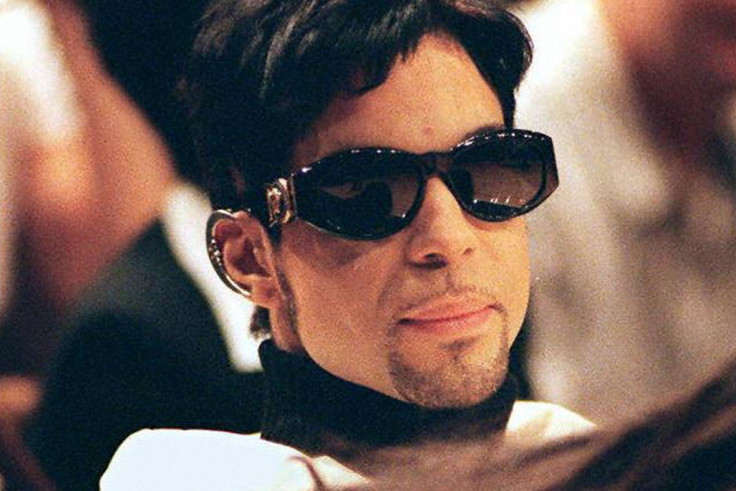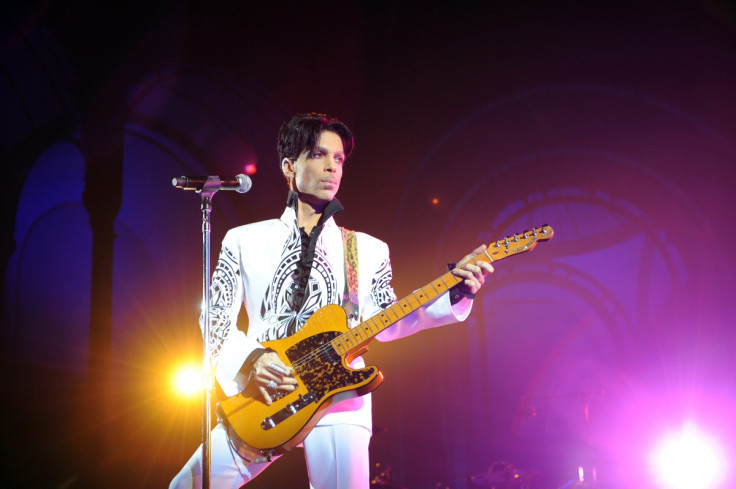Prince's 'drug dealer' claims that the superstar could not perform sober

Prince's former drug dealer, "Dr D", claims that Price spent up to £27,772 ($40,000) a time on six-month supplies of Dilaudid pills and fentanyl patches – both highly addictive opioid painkillers. Dr D has claimed that Prince, who was found dead on Thursday, 21 April, at his home in Minneapolis, Minnesota was addicted to drugs for more than 25 years, and would regularly buying drug from him between 1984-2008.
Speaking to the Daily Mail Dr D, claimed that the superstar could not perform on stage without drugs. He went on to say a doctor may have unknowingly contributed to Prince's death by prescribing strong painkillers for his hip condition, without realising Prince was already using opiates.
"I first met Prince in 1984 while he was filming the movie Purple Rain and he was already majorly addicted to opiates," said Dr D. "I didn't hook him on drugs he was already a really heavy user. In the beginning, he would buy speed [amphetamines] as well as Dilaudid [hydromorphone].

"I would sell him black beauties which were a black pill and cross tops which were also speed pills. He would use that as a counter balance to get back up again from taking opiates.
"That lasted for a couple of years. Then he would just buy Dilaudid, which is a heroin-based opiate. It is highly addictive. As far as I knew he never took heroin – as that would leave you out of it for days whereas Dilaudid gives you an energy buzz as well as making you feel relaxed – so he preferred it.
"He needed the drugs because he was so nervous – he could be nervous in a room with just five people in it. He was scared to go out in public, he was scared to talk to people and didn't like to go on stage – he had the worst case of stage fright I'd ever seen.
"A lot of performers rely on drugs to make them feel confident on stage, but he was by far the worse.
"Plus he was always paranoid about doctors so he wouldn't ask them for help – he had a phobia of them. I was surprised when I heard he had been picking up prescriptions before he died."
TMZ had reported that Prince had been spotted going into a pharmacy near his home four times in the week leading up to his death.
Death due to drugs?
After Prince's death, TMZ reported that anonymous sources said that Prince received emergency treatment for a Percocet overdose on 15 April – six days before he died. Percocet is a painkiller marketed in North America that contains paracetamol and the opioid oxycodone.
On Saturday, 23 April, Cyril Wecht, a forensic pathologist who is not linked to the case has said that Prince's sudden death was from a drug overdose. Speaking on NBC's Today, Wecht said, "I would give overwhelming odds that, tragically, this is a drug death."
He said: "When you rule out foul play, when there is no history of any kind of significant disease, when you rule out any kind of intervention, anything of an environmental nature, you come down to an autopsy that is essentially negative and that probably means drugs."
In 2001, Prince joined the Jehovah's Witnesses. Part of the doctrine of the movement is that the taking of recreational drugs is forbidden. In 2005, it is rumoured that doctors told Prince that he required double hip replacement, but the singer refused the surgery, due to his religious beliefs.
Prince's 1984 anthem Purple Rain looked on course to top next week's official singles chart in the UK, with three of his other hits in the top five. If it reaches the top spot, it will be only the second time Prince has scored a No 1 UK single and would set a new record for the song.
© Copyright IBTimes 2025. All rights reserved.






















